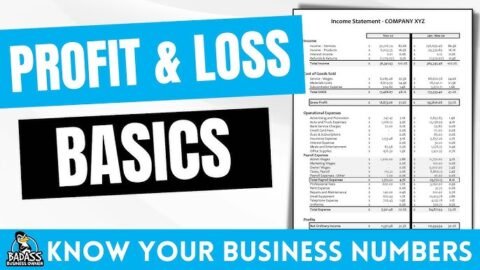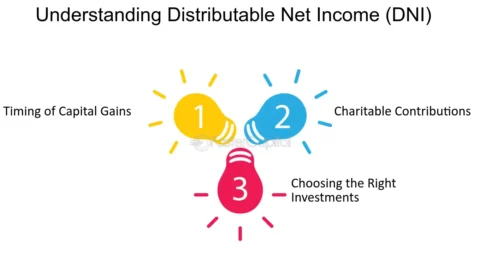The Comptroller of Income Tax is a key figure in the administration of income tax, responsible for overseeing the implementation of tax laws and ensuring that tax revenue is collected efficiently. The role of the Comptroller is crucial in maintaining the integrity of the tax system, ensuring compliance, and supporting the government’s revenue collection efforts. In this blog post, we will explore the functions, responsibilities, and significance of the Comptroller of Income Tax, as well as answer frequently asked questions about this important position.
What is the Comptroller of Income Tax?
The Comptroller of Income Tax is a senior official within the income tax department responsible for administering and enforcing tax laws, assessing tax returns, and ensuring that individuals and businesses comply with their tax obligations. The Comptroller plays a pivotal role in managing the collection of income taxes, conducting audits, and implementing tax policies to ensure that tax revenue is collected fairly and effectively.
The position of the Comptroller is vital for maintaining an efficient tax system that funds essential public services, such as healthcare, education, and infrastructure development. The Comptroller has the authority to make key decisions regarding tax assessments, audits, and enforcement actions.
Key Responsibilities of the Comptroller of Income Tax
Tax Administration: The Comptroller is responsible for overseeing the overall administration of income tax laws, ensuring that taxes are assessed and collected in accordance with regulations.
Tax Assessments: The Comptroller is involved in the assessment of income tax for individuals, businesses, and other entities, ensuring that tax calculations are accurate and in compliance with the law.
Audits and Investigations: The Comptroller conducts audits and investigations to verify the accuracy of tax returns, detect underreporting of income, and identify cases of tax evasion. This helps maintain transparency and accountability in the tax system.
Tax Compliance: The Comptroller ensures that taxpayers are compliant with income tax laws and regulations. This includes monitoring tax filings, conducting audits, and taking enforcement actions against non-compliant taxpayers.
Collection of Taxes: The Comptroller plays a critical role in ensuring that all taxes due are collected efficiently. This includes taking appropriate action in cases of non-payment or tax arrears.
Appeals and Disputes: In cases where taxpayers disagree with tax assessments or audits, the Comptroller reviews appeals and disputes, ensuring that all decisions are made in a fair and impartial manner.
Policy Implementation: The Comptroller helps implement tax policies and provides guidance on the interpretation of tax laws. This ensures that taxpayers and tax officials understand their obligations and rights.
Importance of the Comptroller of Income Tax
Efficient Tax Collection: The Comptroller ensures that tax revenue is collected efficiently and in a timely manner, which is essential for funding public services and government projects.
Ensuring Compliance: By conducting audits and investigations, the Comptroller ensures that taxpayers comply with tax laws, thereby reducing instances of tax evasion and underreporting.
Fair Tax Administration: The Comptroller plays a key role in ensuring that tax laws are applied fairly and uniformly, maintaining public trust in the tax system.
Revenue Generation: The Comptroller’s role in tax collection contributes significantly to government revenue, which is used to support social programs, infrastructure, and other public services.
How to Contact the Comptroller of Income Tax
If you need to contact the Comptroller of Income Tax, it is usually done through formal channels within the income tax department. This might include submitting an appeal, a complaint, or a request for clarification on tax matters. Contact details are typically available on the official website of the income tax department.
Frequently Asked Questions about the Comptroller of Income Tax
Q1: What is the role of the Comptroller of Income Tax?
The Comptroller of Income Tax is responsible for overseeing the administration of income tax laws, conducting audits, assessing tax returns, and ensuring compliance with tax regulations.
Q2: How does the Comptroller of Income Tax ensure compliance?
The Comptroller ensures compliance by monitoring tax filings, conducting audits, investigating discrepancies, and taking enforcement actions against non-compliant taxpayers.
Q3: Can the Comptroller of Income Tax impose penalties?
Yes, the Comptroller has the authority to impose penalties on taxpayers who fail to comply with tax laws or are found guilty of tax evasion.
Q4: How does the Comptroller handle tax disputes and appeals?
The Comptroller reviews appeals and disputes filed by taxpayers who disagree with tax assessments or audits. The review process ensures that all decisions are fair and in accordance with the law.
Q5: What is the difference between the Comptroller of Income Tax and the Commissioner of Income Tax?
The Comptroller of Income Tax typically focuses on overseeing tax collection, compliance, and policy implementation, while the Commissioner of Income Tax may be more involved in assessing tax returns, managing appeals, and ensuring fairness in the assessment process. Both roles are essential for effective tax administration.
Q6: How does the Comptroller contribute to tax policy implementation?
The Comptroller helps implement tax policies by providing guidance on the interpretation of tax laws, ensuring that taxpayers and tax officials understand their obligations and rights.
Q7: Is the Comptroller of Income Tax involved in tax audits?
Yes, the Comptroller oversees tax audits conducted within their jurisdiction to verify the accuracy of tax returns and ensure compliance with tax regulations.
Q8: How can taxpayers approach the Comptroller of Income Tax?
Taxpayers can approach the Comptroller of Income Tax through formal procedures, such as filing an appeal or submitting a request for clarification. Direct contact may not always be possible without following the proper channels.
Q9: What powers does the Comptroller of Income Tax have?
The Comptroller has the power to conduct audits, assess taxes, review appeals, impose penalties, and take enforcement actions to ensure compliance with tax laws.
Q10: Why is the Comptroller of Income Tax important for the tax system?
The Comptroller is important because they ensure efficient tax collection, compliance, and fair administration of tax laws, which contributes to government revenue and public trust in the tax system.
Conclusion
The Comptroller of Income Tax plays a critical role in the administration and enforcement of tax laws. Their responsibilities include overseeing tax assessments, ensuring compliance, conducting audits, and handling disputes. By understanding the role of the Comptroller, taxpayers can better navigate the complexities of the tax system and understand their rights and obligations.


